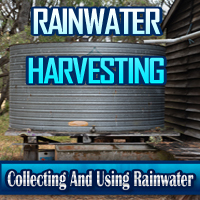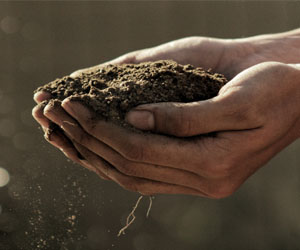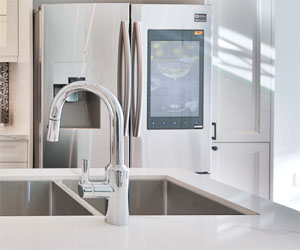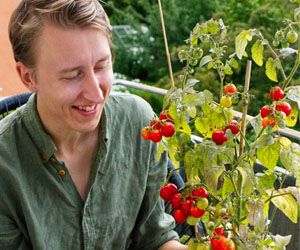


The Liberating Power Of Minimalism

In a world driven by consumerism and the accumulation of possessions, the concept of "freedom from excess" is emerging as a transformative and liberating way of life. This idea, closely associated with minimalism, encourages individuals to reevaluate their relationship with material goods and find contentment by letting go of excess and embracing a simpler, more intentional existence.
The modern consumerist culture often bombards us with messages that more is better, and that happiness can be found through the acquisition of material possessions. However, this mindset can lead to cluttered lives, financial strain, and a sense of emptiness. "Freedom from excess" challenges this narrative, offering a different perspective on what constitutes a fulfilling life.
Here are some key aspects of this philosophy:
Minimalist Living: At its core, "freedom from excess" aligns with minimalist living. It encourages individuals to declutter their living spaces, reduce their material possessions, and focus on the essentials that truly add value to their lives. Minimalist living emphasizes quality over quantity and promotes the idea that less can be more.
Financial Freedom: A focus on "freedom from excess" includes mindful spending and the avoidance of unnecessary debt. By living within one's means and reducing unnecessary expenses, individuals can experience financial freedom, reduce stress, and achieve greater control over their financial future.
Environmental Responsibility: Excessive consumption has a substantial impact on the environment. Minimalist living reduces waste, conserves resources, and lessens the carbon footprint. It encourages eco-friendly practices such as reusing, recycling, and reducing energy and water consumption.
Emotional Well-Being: Reducing the clutter in our lives can lead to a sense of emotional well-being. "Freedom from excess" helps individuals let go of the physical and emotional baggage that often accumulates with possessions. This process can lead to increased mental clarity, reduced stress, and improved emotional health.
Time And Freedom: Possessions often demand time and attention for maintenance, cleaning, and organization. By reducing the number of items one owns, "freedom from excess" frees up time for more meaningful pursuits, hobbies, and experiences.
Increased Mobility: Minimalism and freedom from excess enable a more mobile lifestyle. With fewer possessions to tie you down, you have the freedom to travel, relocate, and adapt to new opportunities and experiences.
Quality Over Quantity: Embracing "freedom from excess" means valuing quality over quantity. Instead of having many possessions that serve little purpose, individuals invest in high-quality items that are truly useful and durable.
Social Connections: A simpler, less materialistic lifestyle often results in deeper and more meaningful social connections. By focusing on experiences and relationships rather than possessions, individuals can strengthen their bonds with family and friends.
In a world where consumerism is pervasive and often equated with success, "freedom from excess" challenges these norms and offers an alternative path to contentment and fulfillment. It encourages individuals to pursue a life with greater purpose and intention, where experiences, relationships, and personal growth take precedence over material possessions.
"Freedom from excess" is a philosophy that celebrates simplicity, sustainability, and the pursuit of a more meaningful and intentional life. It provides individuals with a path to declutter their lives, reduce waste, and achieve a sense of liberation from the burdens of excess material possessions. By embracing this philosophy, individuals can discover a more harmonious balance between their needs, their desires, and their well-being, ultimately leading to a more fulfilling and purpose-driven existence.


A Step Toward Sustainable Living
 Why Environmentally Mindful Cleaning Matters
Why Environmentally Mindful Cleaning Matters
Traditional cleaning products often contain harsh chemicals and synthetic fragrances that can have adverse effects on our health and the environment. These chemicals, when washed down the drain, find their way into waterways, harming aquatic life and affecting the quality of our drinking water. Moreover, indoor air pollution caused by the release of volatile organic compounds (VOCs) from cleaning products can lead to respiratory problems and other health issues.
Environmentally mindful cleaning is about recognizing the interconnectedness of our actions. It's not just about making our immediate surroundings cleaner; it's about preserving the planet for future generations. By making eco-conscious choices in our cleaning routines, we can significantly reduce our ecological footprint and contribute to a healthier world.
The Green Cleaning Revolution
The shift towards environmentally mindful cleaning practices has given rise to a green cleaning revolution. This movement encourages the use of natural, non-toxic, and sustainable alternatives to conventional cleaning products. Some of the key elements of this revolution include:
Natural Ingredients: Many common household items like vinegar, baking soda, lemon juice, and essential oils can serve as powerful cleaning agents. They are safe, effective, and readily available.
Reducing Plastic Waste: Eco-friendly cleaning often involves the use of refillable and reusable containers, reducing the need for single-use plastic bottles that can take hundreds of years to decompose.
 Soil Testing: Start with a soil test to determine its pH level and nutrient content. This guides you in making necessary adjustments.
Soil Testing: Start with a soil test to determine its pH level and nutrient content. This guides you in making necessary adjustments.
Clear The Area: Remove any weeds, rocks, or debris from the planting area to provide a clean slate for your garden.
Amend The Soil: Depending on the soil test results, amend your soil with organic matter like compost, well-rotted manure, or peat moss. These materials improve soil structure and nutrient content.
Till The Soil: Use a tiller or a spade to mix in the amendments and break up compacted soil. The goal is to create a loose, well-aerated soil structure.
Mulch The Surface: Apply a layer of organic mulch to conserve moisture, regulate soil temperature, and suppress weed growth.
Maintain Soil Health: Regularly test and amend your soil as needed. Crop rotation and cover cropping can also help maintain soil fertility.
Water And Monitor: After planting, water your garden beds appropriately, keeping the soil consistently moist but not waterlogged. Monitor plant health for signs of nutrient deficiencies.
Soil preparation is not a one-time task; it's an ongoing process. Healthy soil is the foundation of a productive garden, and it requires attention and care. With the right preparation, your garden will thrive, producing abundant harvests and blooming with vibrant flowers. Whether you're a novice gardener or an experienced one, soil preparation is a critical step in your journey toward gardening success.
Leading The Way To Self-Sufficiency And Sustainability
 Off-grid pioneers are adventurers who have chosen to break free from the shackles of modern civilization, to take a step back from the hustle and bustle of urban life, and to reconnect with the natural world. They often opt for remote locations, nestled in the heart of nature, where they build sustainable homes, harness renewable energy sources, and cultivate their own food. Their goal is to reduce their ecological footprint and live in harmony with the environment.
Off-grid pioneers are adventurers who have chosen to break free from the shackles of modern civilization, to take a step back from the hustle and bustle of urban life, and to reconnect with the natural world. They often opt for remote locations, nestled in the heart of nature, where they build sustainable homes, harness renewable energy sources, and cultivate their own food. Their goal is to reduce their ecological footprint and live in harmony with the environment.
One of the defining characteristics of these pioneers is their resourcefulness. They are masters of ingenuity, using their creativity to overcome challenges that come with living off the grid. From constructing eco-friendly homes using natural materials to repurposing everyday items for new purposes, they exemplify the art of making do with what they have.
Adaptability is another key trait of off-grid pioneers. They understand that living off the grid requires flexibility and the ability to embrace change. These individuals are constantly learning new skills, from foraging for wild edibles to harnessing solar or wind energy, and are quick to adapt to the dynamic conditions of life in the wilderness.
Moreover, these pioneers are committed to reducing their environmental impact. They use renewable energy sources like solar panels and wind turbines, collect rainwater, and practice composting and recycling. By doing so, they serve as a shining example of eco-conscious living, demonstrating how it's possible to minimize harm to the planet even while residing in remote areas.
Bringing Sunshine To Your Home
 Connection To The Grid: In many cases, residential solar systems are connected to the grid. This allows excess energy to be sent back to the grid in exchange for credits or compensation.
Connection To The Grid: In many cases, residential solar systems are connected to the grid. This allows excess energy to be sent back to the grid in exchange for credits or compensation.
Testing And Inspection: Once the installation is complete, the system is thoroughly tested to ensure it's working correctly. Inspections may also be required to verify compliance with local regulations.
Monitoring And Maintenance: After installation, your solar system will be monitored to track its performance. Routine maintenance, such as cleaning the panels and checking for any issues, will be necessary to keep the system running efficiently.
Benefits Of Solar Installation
Reduced Energy Bills: Solar installation can significantly reduce your electricity bills. By generating your electricity from sunlight, you'll rely less on traditional utility providers.
Environmental Benefits: Solar power is a clean and renewable energy source. It reduces your carbon footprint and helps combat climate change.
Energy Independence: Solar installation provides a degree of energy independence. You're less reliant on the grid, which can be particularly beneficial during power outages.
Increased Property Value: Homes with solar panels are often more attractive to buyers, potentially increasing your property's value.
The Future Of Modern Living
 What Are Smart Appliances?
What Are Smart Appliances?
Smart appliances are traditional household devices, such as refrigerators, ovens, washing machines, and even coffee makers, that are equipped with advanced technology and connectivity features. These features allow them to be remotely controlled and monitored through a smartphone app or voice-activated virtual assistants. Smart appliances can perform a wide range of functions, from adjusting settings to sending notifications and alerts.
Convenience And Efficiency
One of the most significant advantages of smart appliances is the level of convenience they bring to everyday tasks. Imagine being able to preheat your oven on your way home, so dinner is ready as soon as you arrive. Smart appliances enable you to control and monitor their functions from virtually anywhere, giving you more control over your daily routines.
Energy Efficiency And Cost Savings
Smart appliances are designed to be energy-efficient. They often include features like energy-saving modes, remote scheduling, and real-time consumption tracking. For instance, smart thermostats can learn your heating and cooling preferences and create optimized schedules, which not only improve comfort but also save on energy costs. Smart appliances not only benefit your wallet but also contribute to environmental sustainability.
Integration With Smart Homes
Smart appliances are designed to be compatible with other smart home devices and systems. They can seamlessly integrate with centralized home automation hubs, allowing you to control multiple devices from a single app or voice-activated virtual assistant. This interconnected ecosystem enhances the overall smart home experience.
Voice Control
Many smart appliances can be controlled via voice commands through virtual assistants like Amazon's Alexa, Google Assistant, or Apple's Siri. This feature adds an extra layer of convenience, allowing you to adjust settings or start tasks without needing to touch a button or screen.
 Growing your own food is not just a trend; it's a way of life that offers a plethora of benefits for individuals, communities, and the planet.
Growing your own food is not just a trend; it's a way of life that offers a plethora of benefits for individuals, communities, and the planet.
The Resurgence Of Home Gardening
In recent years, there has been a significant resurgence in home gardening. People from all walks of life are rediscovering the joy and satisfaction that comes with nurturing a garden and producing their food. Whether you have a sprawling backyard or just a tiny balcony, there's a way to grow something that will grace your table with fresh, homegrown flavors.
The Joys Of Growing Your Own Food
One of the most immediate and rewarding aspects of growing your own food is the connection you establish with the earth. As you till the soil, plant seeds, and watch your crops grow, you become part of the natural world's cycles. The joy of seeing a tiny seed sprout into a thriving plant and, eventually, bearing fruits or vegetables is a deeply gratifying experience. It's a tangible connection to the earth's rhythms.
Nutrition And Health Benefits
Homegrown produce is not only delicious but also healthier. You have control over what goes into your garden, which means you can choose to grow organic, pesticide-free food. This translates into fresh, nutrient-rich produce that you can pick at the peak of ripeness, ensuring the highest levels of vitamins and minerals. Additionally, the physical activity and fresh air involved in gardening contribute to a healthier lifestyle.
Environmental Impact
Growing your own food is a sustainable and environmentally friendly practice. It reduces the carbon footprint associated with the transportation and packaging of commercially grown produce. Home gardens can also serve as biodiversity hubs, attracting pollinators and beneficial insects, contributing to the health of local ecosystems.
The Art Of Wilderness Living
 Wilderness living is all about embracing the raw and unspoiled natural world. It involves choosing to reside in remote, unpopulated areas, often far from the amenities and comforts of modern civilization. Those who opt for this lifestyle build their homes, forage for food, and harness the elements to survive. It's a challenging yet rewarding way of life that allows individuals to experience a profound sense of freedom, self-sufficiency, and harmony with nature.
Wilderness living is all about embracing the raw and unspoiled natural world. It involves choosing to reside in remote, unpopulated areas, often far from the amenities and comforts of modern civilization. Those who opt for this lifestyle build their homes, forage for food, and harness the elements to survive. It's a challenging yet rewarding way of life that allows individuals to experience a profound sense of freedom, self-sufficiency, and harmony with nature.
One of the fundamental aspects of wilderness living is self-reliance. Those who live in the wild learn to depend on their resourcefulness and creativity to meet their basic needs. Whether it's building shelter from natural materials, hunting, fishing, or foraging for food, these individuals rely on their ingenuity and skills to thrive in a challenging environment.
Living in the wilderness requires adaptability, as nature is unpredictable. The ability to respond to changing conditions, from weather patterns to the availability of food sources, is crucial for survival. Wilderness dwellers must be in tune with the rhythms of the natural world, adapting and learning as they go.